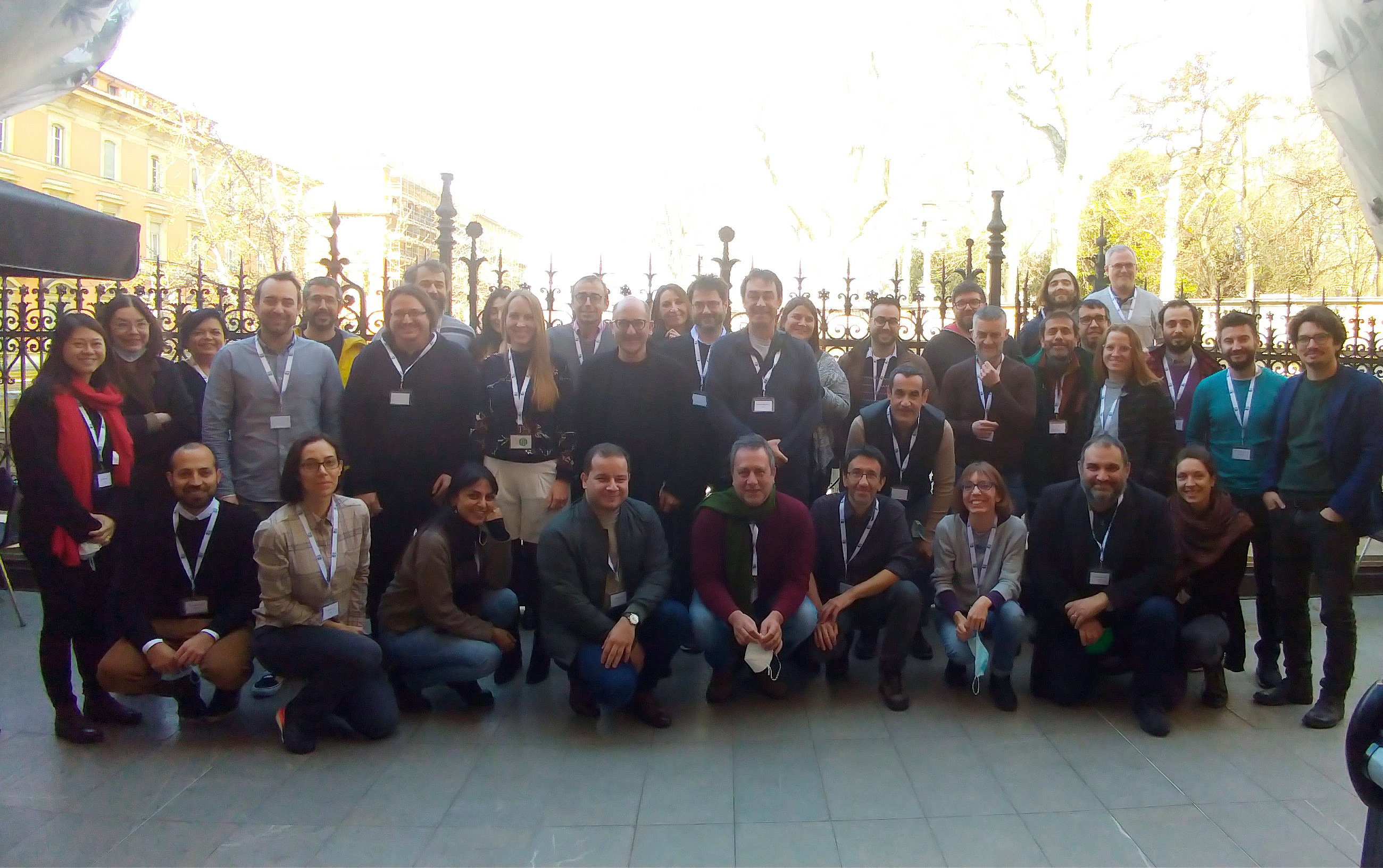In three and a half years, ChEESE has managed to achieve significant results not only in its technical work but in its outreach and engagement activities. Listed below are some highlighted success stories of the project.

Scientific publications and presentations
ChEESE has 60 open access peer-reviewed publications. This is expected to grow up to more than 90 journal publications (90% in Q1 journals). Presentations in international conferences and workshops are expected to grow up to more than 200 contributions. View the publications page.
ChEESE special issue in Frontiers in Earth Science
An all-women editorial board from ChEESE led the Frontiers in Earth Science special issue called "High-Performance Computing in Solid Earth Geohazards: Progresses, Achievements and Challenges for a Safer World". View more information.
Galileo Conference
ChEESE´s proposal for a Galileo Conference entitled “Solid Earth and Geohazards in the Exascale Era” has been granted. It is expected to take place in Barcelona on 23-26 May 2023. It involves 9 EGU Divisions and will gather around 100 experts to participate in: (i) master classes, (ii) keynotes and sessions to exchange ideas and brainstorm on 4 trending topics and, (iii) the creation of a consensual roadmap for our Community towards the Exascale era.
PRACE project awards
ChEESE was awarded 4 PRACE projects and 2 national projects in Germany with a total of 217M core hours for the Pilot Demonstrator activities.
Large-scale testbed executions
ChEESE has performed 5 large-scale testbed executions for the following Pilot Demonstrators:
- PD1 Salvus capability run using 84000 cores (3000 nodes) @MN4
- PD1 SPECFEM3D capability run using 1024 V100 GPUs (256 nodes) @M100
- PD4 SeisSol capability run using 76800 cores (1600 nodes) @SuperMUC
- PD5 ExaHyPE capacity run using 35000 cores (730 nodes) @SuperMUC
- PD8 HySEA capacity run using 3220 V100 GPUs (805 nodes) @M100
Exercises as stakeholder and engagement strategy
ChEESE has leveraged its exercises as a stakeholder and real engagement strategy. Up to 14 use cases and 6 live exercises have been done as a demonstration of the Pilot Demonstrator evolution (from Pilots to operational environments) engaging 53 institutions (represented by 99 individuals) from 26 different countries.
Faster than real-time tsunami simulation service
The Pilot Demonstrator 2 exploited operationally (TRL=9) by IGN (the Spanish Instituto Geografico Nacional), ARISTOTLE-eENHSP delivering to the European Emergency Response Coordination Centre (ERCC), and the ARISTOTLE tsunami service is integrated in the SPADA (Scientific Products Archiving and Document Assembly) IT platform.
Urgent computing during La Palma eruption
The Pilot Demonstrator 12 ran operationally (TRL=9) during the eruption. Ensemble-based (scenarios) ash dispersal forecasts ran @MN4 from 19 Nov to 13 Dec 2021 and delivered daily (at 8:00 am local time) to the scientific committee of the PEVOLCA and to the civil protection authorities for real operational decision-making on airport operations (including closure) and air quality confinements of population. This has been proposed as a case to the 2022 Horizon Impact Award.
International recognition for urgent computing
ChEESE is becoming the reference for urgent computing including EuroHPC Infrastructure Advisory Group (INFRAG) Access Policy Group Recommendations and the EuroHPC urgent computing access mode identified to upcoming tier-0 machines for natural disasters and pandemics (see the DECISION OF THE GOVERNING BOARD OF THE EuroHPC JOINT UNDERTAKING No 18/2021).
Growing ecosystem around ChEESE research
A rich ecosystem is flourishing with projects and initiatives that will benefit from (and leverage the use of) current pre-exascale and upcoming exascale EuroHPC infrastructures. This includes:
- eFlows4HPC (2021-2024) A EuroHPC project for workflow software stack integrating HPC simulations with big data analytics and machine learning, with a pillar use-case on natural catastrophes (earthquakes and tsunamis).
- Geo-INQUIRE (2022-2024) A Horizon Europe project for virtual and trans-national service access to data and state-of-the-art numerical models and workflows with HPC resources.
- DT-GEO (2022-2025) A Horizon Europe project to deploy a prototype Digital Twin (DT) on geophysical extremes with long-term ambition towards Destination Earth.
